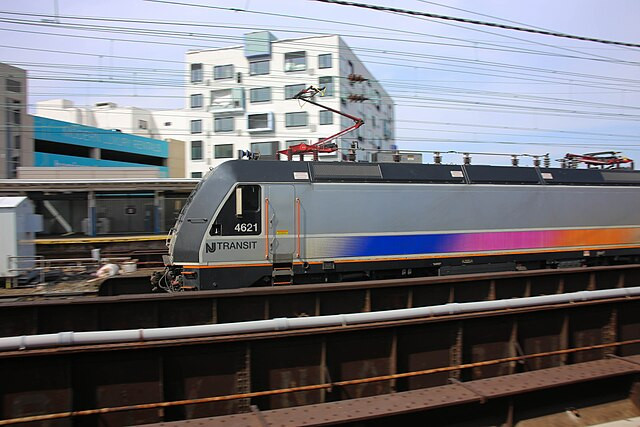Commuters using NJ Transit and Amtrak services faced significant delays and disruptions Thursday morning following a major incident involving downed power lines that brought services to a halt during the previous evening's rush hour. The disruptions, which began at 5:30 p.m. Wednesday, left many passengers stranded and frustrated as they scrambled to find alternative routes home.
On Wednesday evening, overhead power lines came down, blocking tracks between New York and Newark, effectively halting both Amtrak and NJ Transit services. An Eyewitness News colleague reported being stuck on an Amtrak train, with the conductor announcing, "It's gonna be awhile." It took until 9:30 p.m. for crews to restore power on one track, allowing limited travel to resume.
By early Thursday morning, Amtrak reported that its services would run on schedule, having completed all necessary repairs overnight. However, NJ Transit warned commuters to expect potential delays and cancellations due to crew and equipment availability. NJ Transit advised passengers to check njtransit.com for updates and alternative service information.
Many commuters expressed frustration with the lack of communication during the disruptions. "They need to turn on the air conditioning because it is hot in here. And they really need to communicate with us because we're standing around for the last hour and not one peep of what's going on," said Toni Brenda, one of the stranded passengers.
NJ Transit services were significantly affected. Northeast Corridor Line rail service was suspended between Penn Station New York and Metropark, while the North Jersey Coastline and Raritan Valley Line services were halted in both directions. Midtown Direct services were diverted to Hoboken. NJ Transit tickets were cross-honored with NJ Transit buses, private carriers, and PATH at Newark Penn Station, Hoboken, and 33rd Street-New York.
Amtrak services operating between New York and Philadelphia were also suspended, with customers advised to call 1-800-USA-RAIL and follow @AmtrakNECAlerts on X for real-time updates. Many passengers, including fans heading to the New York Rangers playoff game at Madison Square Garden, were left seeking alternative travel options as extensive delays ensued.
Samantha Taylor, a visitor from India, found herself and her family stuck in New York City. "We saw it on the app that it was canceled, so we checked for the next train-nothing available for today," she said.
Wednesday's incident marked the second consecutive day of significant disruptions on NJ Transit due to similar issues. On Tuesday, downed power lines also caused major delays, compounding the frustration for regular commuters. "Every single day it's a problem with the train," one commuter lamented. "I'm not gonna sit here and wait for no train. Either way, I can't get to work regardless."
Adding to the chaos, NJ Transit's website experienced issues, further frustrating commuters who relied on it for updates. The long lines at the Amtrak ticket window in Moynihan Train Hall exemplified the widespread impact, as people sought assistance and tried to rearrange their travel plans.
The disruptions were particularly challenging for commuters like Lamesha Taylor from the Bronx, who worried about making it to Trenton on time. "Everything is delayed. I sent everything to my supervisor because I don't think I'm gonna be able to make it to Trenton," she said. Yolanda Crudup of Ewing Township, New Jersey, echoed this sentiment, noting the lack of alternative bus routes.
Despite the restoration of one track, the residual effects of the disruption were felt throughout the morning commute. NJ Transit's efforts to resume normal service were hindered by the need to reposition crews and equipment displaced by the previous night's chaos.
Amtrak's swift response in restoring service was contrasted by the continued struggles faced by NJ Transit. Commuters were advised to remain patient and plan for potential delays as both transit systems worked to normalize operations.
In the aftermath, questions remained about the robustness of the infrastructure and the readiness of both transit agencies to handle such disruptions. With the high stakes of daily commutes and the critical role of reliable transportation in the region, these incidents highlight the ongoing challenges in maintaining and upgrading the transportation network to meet the demands of millions of travelers.




